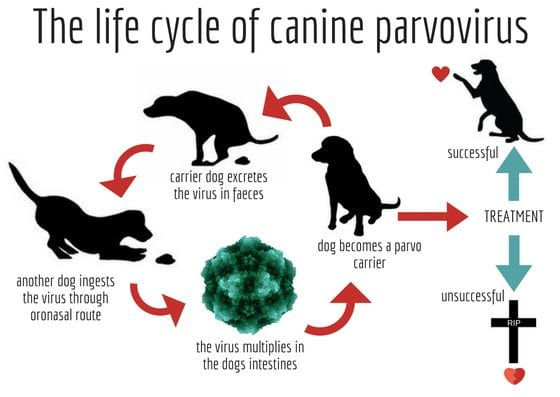How Is Canine Parvovirus Diagnosed in pet animals?
- Homeopathy Pharma Official
- Mar 6, 2023
- 2 min read

Canine Parvovirus (CPV) is a highly contagious viral disease that affects dogs of all ages, especially puppies. It was first identified in the late 1970s and has since become a significant concern for dog owners and veterinarians worldwide. In this article, we will discuss the causes, symptoms, diagnosis, treatment, and prevention of Canine Parvovirus. Causes: CPV is a highly contagious virus that is transmitted through direct contact with an infected dog or contaminated feces, urine, or other body fluids. The virus can survive in the environment for months and can spread rapidly among dogs in crowded areas such as dog parks, kennels, and shelters. Dogs of all ages can be infected, but puppies under six months of age are at the highest risk of developing severe disease. Symptoms: The symptoms of CPV can vary depending on the severity of the infection. The virus attacks the dog's digestive system and bone marrow, leading to severe dehydration, diarrhea, vomiting, and loss of appetite. The feces of infected dogs may have a foul odor and contain blood or mucus. The virus also weakens the immune system, making the dog more susceptible to secondary infections. In severe cases, CPV can cause shock and death. Diagnosis: The diagnosis of CPV is usually made based on clinical signs and laboratory tests. A veterinarian may perform a physical exam and collect a fecal sample to test for the virus. Blood tests may also be performed to evaluate the dog's white blood cell count and determine if the virus has caused anemia or other complications. Treatment: There is no cure for CPV, and treatment is supportive and aimed at managing the dog's symptoms and preventing dehydration and secondary infections. Dogs with severe dehydration may require hospitalization and intravenous fluids. Antibiotics may be prescribed to prevent or treat secondary bacterial infections. Pain medication and anti-nausea medication may also be prescribed. It is essential to monitor the dog's condition closely and seek veterinary care immediately if there is a decline in the dog's health. Prevention: The best way to prevent CPV is through vaccination. Puppies should be vaccinated starting at six to eight weeks of age, with boosters every three to four weeks until they are 16 weeks old. Adult dogs should receive annual booster shots to maintain immunity. It is also important to practice good hygiene and sanitation to prevent the spread of the virus. Avoid taking unvaccinated puppies to high-risk areas such as dog parks or kennels. Clean and disinfect areas where infected dogs have been, including bowls, toys, and bedding. In conclusion, Canine Parvovirus is a highly contagious viral disease that affects dogs of all ages, but puppies are at the highest risk. The virus attacks the digestive system and bone marrow, leading to severe dehydration, diarrhea, vomiting, and loss of appetite. There is no cure for CPV, and treatment is supportive and aimed at managing symptoms and preventing dehydration and secondary infections. The best way to prevent CPV is through vaccination, good hygiene, and sanitation practices.



Comments